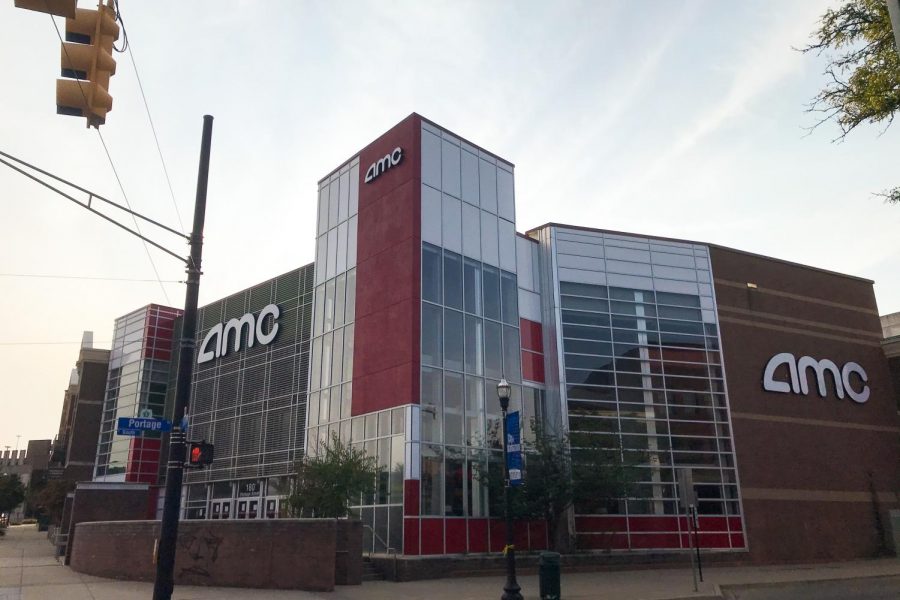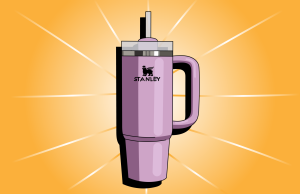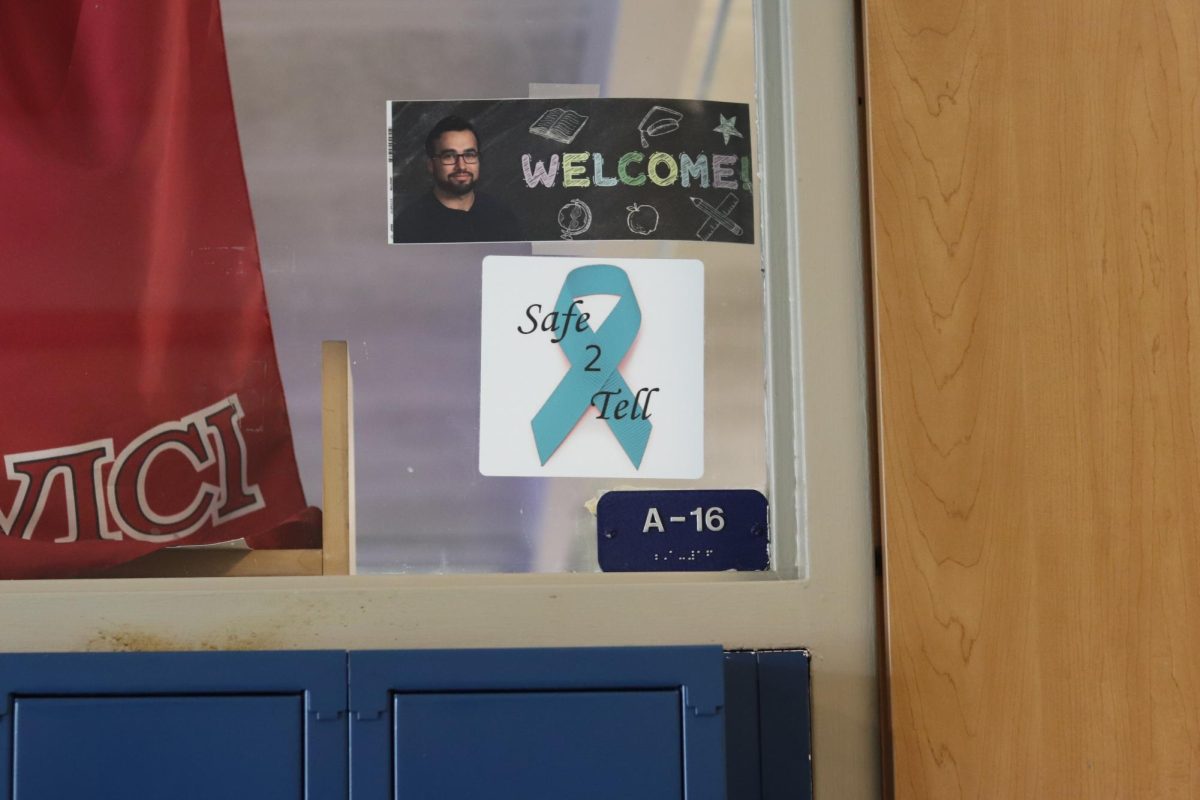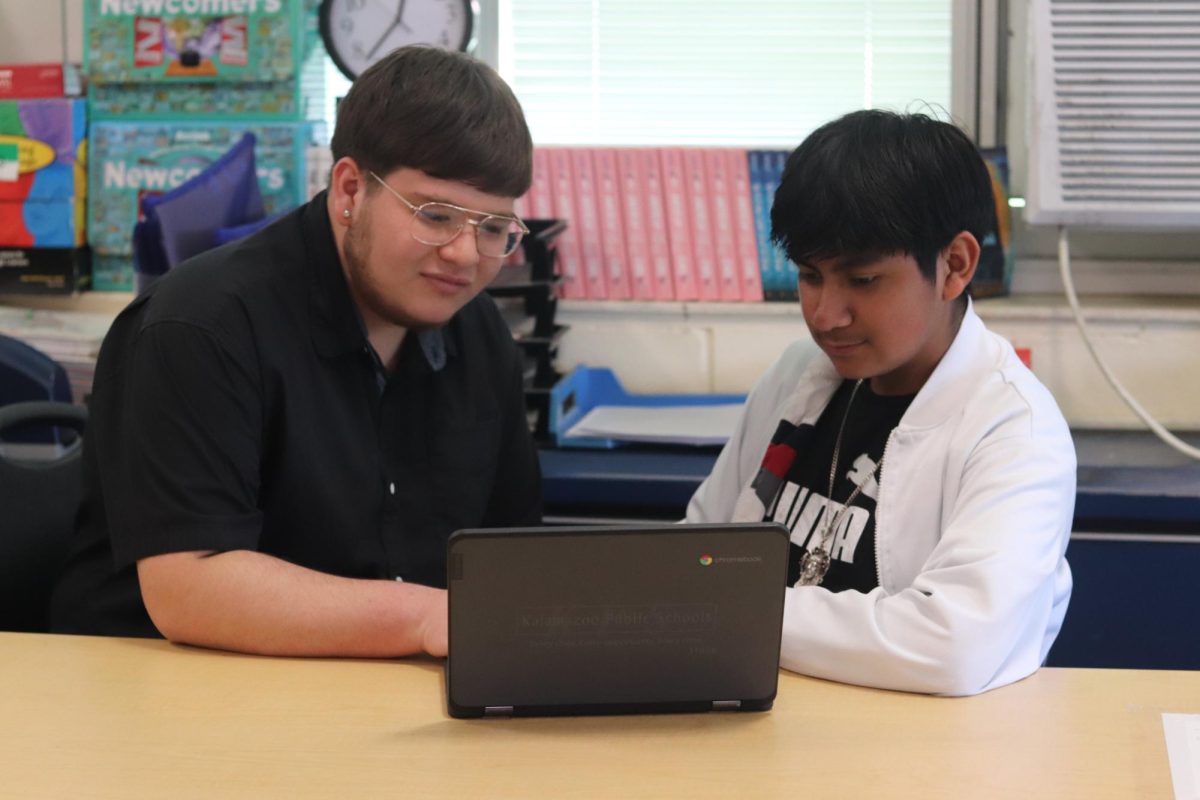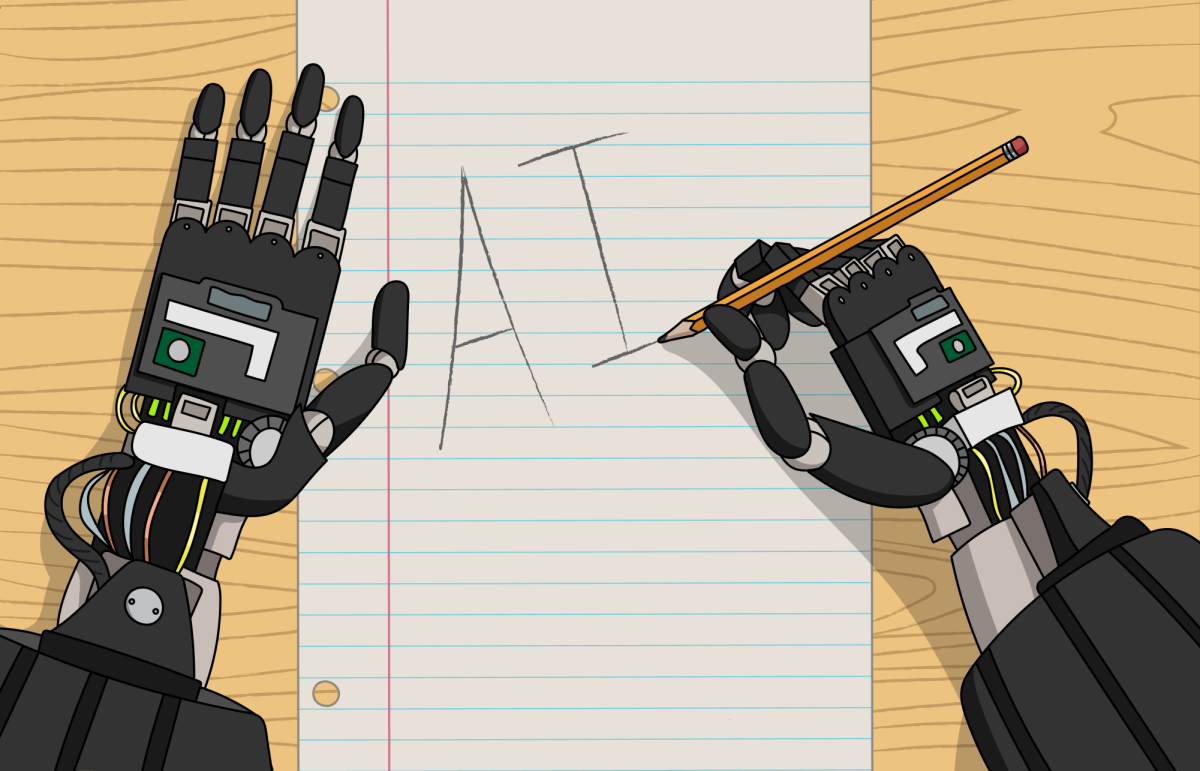We’re not ready for normalcy; it’s too soon for movie theaters to open
Credit: Zoe Naylor
This building in downtown Kalamazoo has played host to several different theater chains over the last decade, with AMC occupying the space most recently. Kalamazoo’s AMC theater remains closed in the midst of the pandemic, but around the country AMC has opened more of its doors than any other theater chain.
September 30, 2020
In the era of COVID-19, many of the things that used to bring joy to everyday life have sadly been shut down until public health is no longer at risk.
The closing of movie theaters around the country last March left me particularly heartbroken. I remember the last movie I saw in theaters pretty distinctly; it was Greta Gerwig’s “Little Women,” and I saw it with my mother over winter break.
Since March, COVID-19 has continued to ravage the US, infecting nearly 7 million and leaving 200 thousand dead, in places like Ohio, Indiana and even the Upper Peninsula though, movie theaters are beginning to open again.
As of September 2020, movie theaters in West Michigan have not yet reopened in accordance with Governor Gretchen Whitmer’s MI Safe Start guidelines, but they could in the near future if cases in West Michigan continue to decrease and we are moved from phase five to phase six. It’s important to be aware of the potential risks to yourself and your community.
AMC is one of the largest movie theater chains in the country, and we have one right here in downtown Kalamazoo. On their website AMC lists many of the safety precautions they plan on taking in order to prevent the possible spread of the virus, including requiring masks, reducing capacity and enforcing social distancing requirements. Even with these measures in place, I am skeptical.
“I feel like it would be difficult to monitor who is wearing a mask or not in a dark theater. People love to eat at the movies, and you have to take your mask off to do that… I feel like the theaters would be too difficult to run,” said movie lover Jack Fergusson, a senior at Loy Norrix.
The release of Christopher Nolan’s new action film, “Tenet,” pushed many theaters around the country to open their doors, promising to bring in significant box-office revenue. In reality, “Tenet” only made roughly $10 million over its first weekend, a meager sum in comparison to some of Nolan’s other films: “Batman Begins” made $48 million in its opening weekend and “Inception” made $62.7 million.
According to the article “Movie Theaters Returned. Audiences Didn’t. Now What?” by Nicole Sperling and Brooks Barnes of the New York Times, “whatever the reason, the bottom line was strikingly clear: People aren’t going to the movies at anywhere close to the numbers that Hollywood hoped, and things are not expected to improve in the near term.”
It’s not just customers that are afraid of movie theaters reopening, many employees have shared their thoughts and fears regarding the prospect.
According to the article “As movie theaters reopen nationwide, some employees are reluctant to return” by Sonia Rao of the Washington Post, “employees of chains across the country expressed doubts about whether these new workplace standards would be met everywhere. Some were given only a few days to prepare to return to work, where they would have to contend with twice as many responsibilities and a fraction of the staff.”
“I don’t think being in an enclosed space like that for two to three hours is smart considering how COVID spreads,” said senior Greta Salamun, who has starred in shows such as “Guess Who’s Coming to Dinner” and “Pippin” at Loy Norrix.
Those currently in favor of theaters reopening are those who would profit from getting people to go see movies. When movie theaters closed in March, the entire industry lost billions of dollars and many people lost their jobs. Some smaller theaters and chains may never recover and have to close permanently as a result.
Even with the potential financial drawbacks of continuing to keep theaters closed, I believe that the risk to public safety is greater. The economy will have the opportunity to recover, but it isn’t possible to bring people back from the dead.

